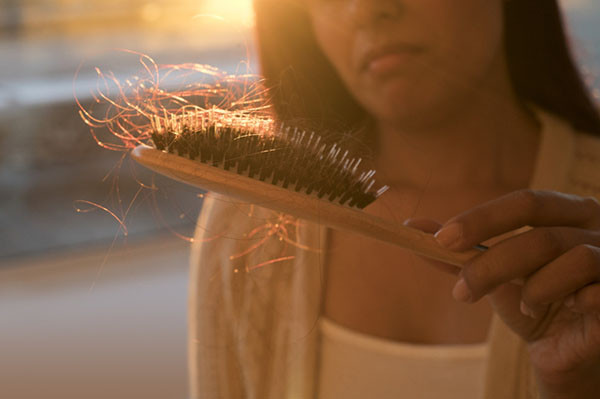
5 timeless habits for better health

What are the symptoms of prostate cancer?

Is your breakfast cereal healthy?

When pain signals an emergency: Symptoms you should never ignore

Does exercise give you energy?

Acupuncture for pain relief: How it works and what to expect

How to avoid jet lag: Tips for staying alert when you travel

Biofeedback therapy: How it works and how it can help relieve pain

Best vitamins and minerals for energy

Should you take probiotics with antibiotics?
Skin and Hair Archive
Articles
Monkeypox: An unfamiliar virus spreading fast — sound familiar?
More than two years after COVID-19 reached the US, an outbreak of monkeypox is spreading fast outside of Africa. This virus is not new, and it's likely to be less dangerous than COVID, but it's still important to be aware of its symptoms, spread, treatment, and prevention.
Melasma: What are the best treatments?
Melasma is a skin condition affecting mostly women with darker skin. It cannot be fully prevented in those most likely to develop it, and there is no cure, but consistent sunscreen use is critical, and numerous treatment options are available.
Recognizing and preventing sun allergies
There are several types of "sun allergies," including polymorphous light eruption (PMLE), hives, and photoallergic reactions. Learn about these different reactions to sun exposure, as well as prevention and treatment.
You don't say? Does that tickle?
Ticklishness falls into two categories: gargalesis (which produces laughter and squirming) and knismesis (the sensation of a feather brushing over the skin, also known as light-touch tickling). It is not clear why some people are ticklish, but it may be a bonding or protective reaction.
Adult female acne: Why it happens and the emotional toll
Women are more likely to get acne after age 20 than men. Unfortunately, treatment options that worked in the teenage years may not work as well in adult females. The emotional toll of acne may include a higher risk of developing depression, and having severe acne can negatively affect quality of life.
Why do I itch more at night?
Nighttime skin itching can stem from dry skin, hormone changes, certain medications and skin care products, and rarely, a more serious illness. It can help to change bedding or pajamas, take short baths or showers, apply moisturizer liberally, and use a humidifier.
Why do I burn even if I'm slathered in sunscreen?
People can get sunburned even with sunscreen on, particularly if they use old sunscreen or certain drugs and skin care products that leave skin vulnerable. People should stay out of the sun at midday, wear a hat and sunglasses, and frequently apply sunscreen with SPF 30 or higher.
How can I heal my dry hands?
Frequent handwashing may lead to dry, cracked skin. Strategies such as lowering the water temperature and moisturizing with a heavy hand cream after washing can allow the skin to heal. Also try wearing cotton gloves over a thick moisturizer at night.
What is alopecia areata and how is it managed?
Hair loss is a common problem for many men and women, but what does it mean to have alopecia? Alopecia areata occurs when the body's immune system attacks hair follicles, resulting in hair loss. AA can affect the scalp, eyebrows, eyelashes, or anywhere hair grows on the body.
When is a drug rash more than just a rash?
Rashes are a common side effect of many medications, and while they can be annoying, they typically run their course over a week or two. But not all drug rashes are mild — and some can even be deadly. How can you tell a serious rash from one that is just a nuisance?

5 timeless habits for better health

What are the symptoms of prostate cancer?

Is your breakfast cereal healthy?

When pain signals an emergency: Symptoms you should never ignore

Does exercise give you energy?

Acupuncture for pain relief: How it works and what to expect

How to avoid jet lag: Tips for staying alert when you travel

Biofeedback therapy: How it works and how it can help relieve pain

Best vitamins and minerals for energy

Should you take probiotics with antibiotics?
Free Healthbeat Signup
Get the latest in health news delivered to your inbox!
Sign Up











